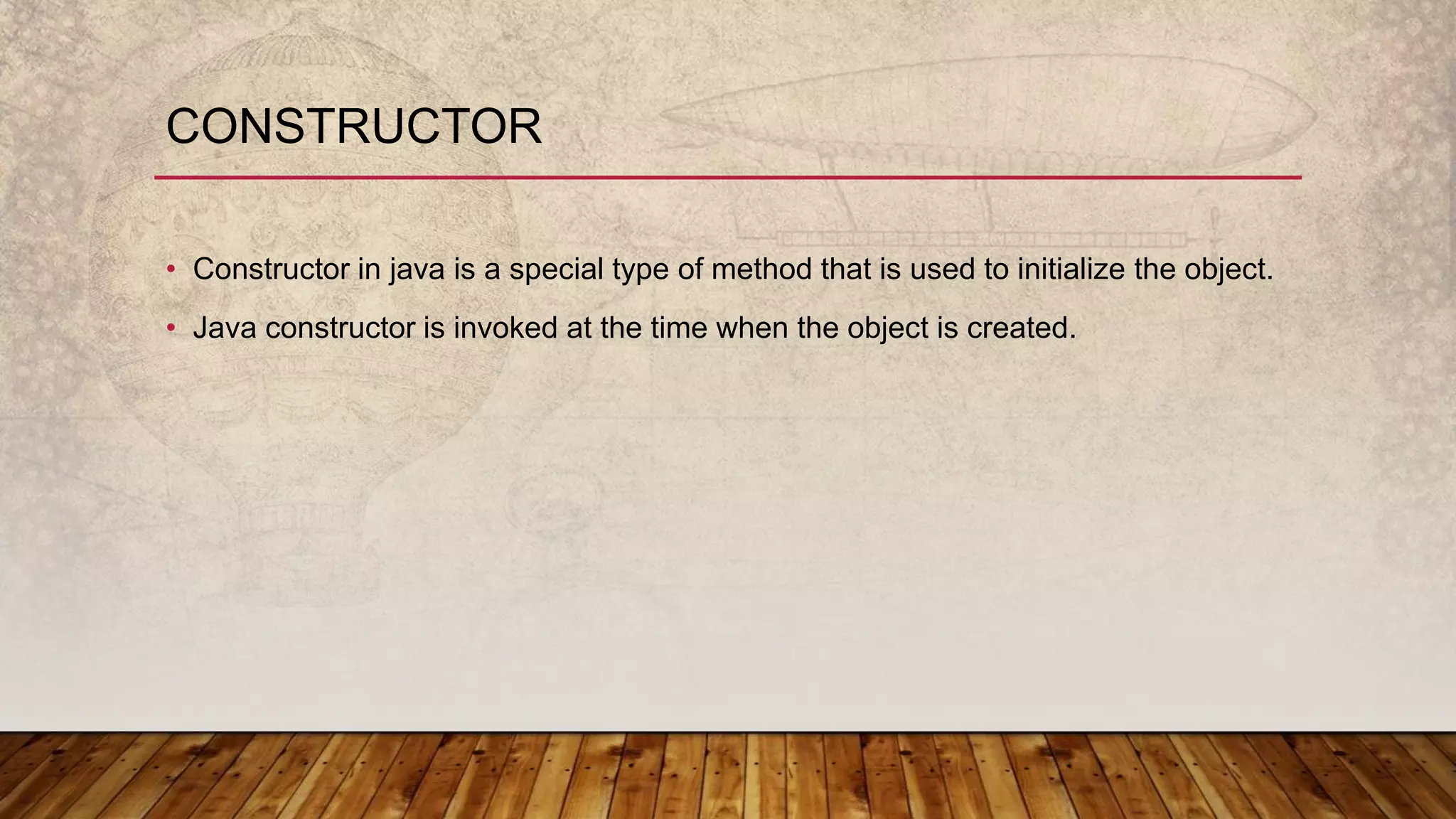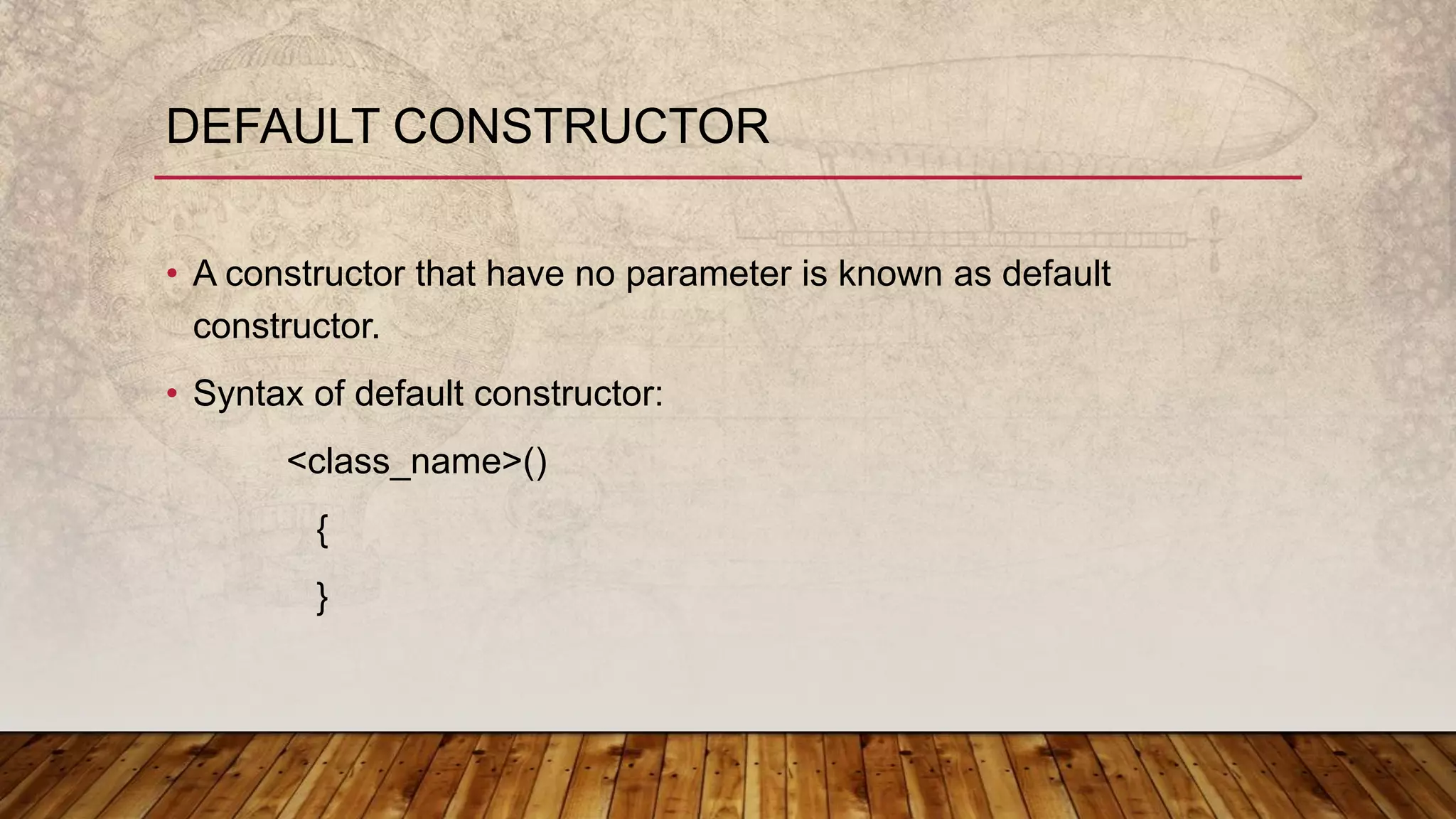This document discusses constructor overloading in Java. It defines constructors as special methods that initialize objects. There are two types of constructors: default (no-argument) constructors and parameterized constructors. Constructor overloading allows a class to have multiple constructors that differ in their parameter lists. This allows constructors to perform different initialization tasks depending on the arguments passed. The document provides examples of default, parameterized, and overloaded constructors.






![EXAMPLE
class Bike{
Bike(){
System.out.println("Bike is created");
}
public static void main(String args[]){
Bike b=new Bike();
}
}](https://image.slidesharecdn.com/constructoroverloadingmethodoverloading-190224123707/75/Constructor-overloading-method-overloading-7-2048.jpg)

![EXAMPLE
class Student{
int id;
String name;
Student(int i,String n) {
id = i;
name = n;
}
void display(){System.out.println(id+" "+name);}
public static void main(String args[]){
Student s1 = new Student(111,"Karan");
Student s2 = new Student(222,"Aryan");
s1.display();
s2.display();
}
}](https://image.slidesharecdn.com/constructoroverloadingmethodoverloading-190224123707/75/Constructor-overloading-method-overloading-9-2048.jpg)

![• class Student5{
• int id;
• String name;
• int age;
• Student5(int i,String n){
• id = i;
• name = n;
• }
• Student5(int i,String n,int a){
• id = i;
• name = n;
• age=a;
• }
• void display(){System.out.println(id+" "+name+" "+age);
• }
• public static void main(String args[]){
• Student5 s1 = new Student5(111,"Karan");
• Student5 s2 = new Student5(222,"Aryan",25);
• s1.display();
• s2.display();
• }
• }
EXAMPLE](https://image.slidesharecdn.com/constructoroverloadingmethodoverloading-190224123707/75/Constructor-overloading-method-overloading-11-2048.jpg)
